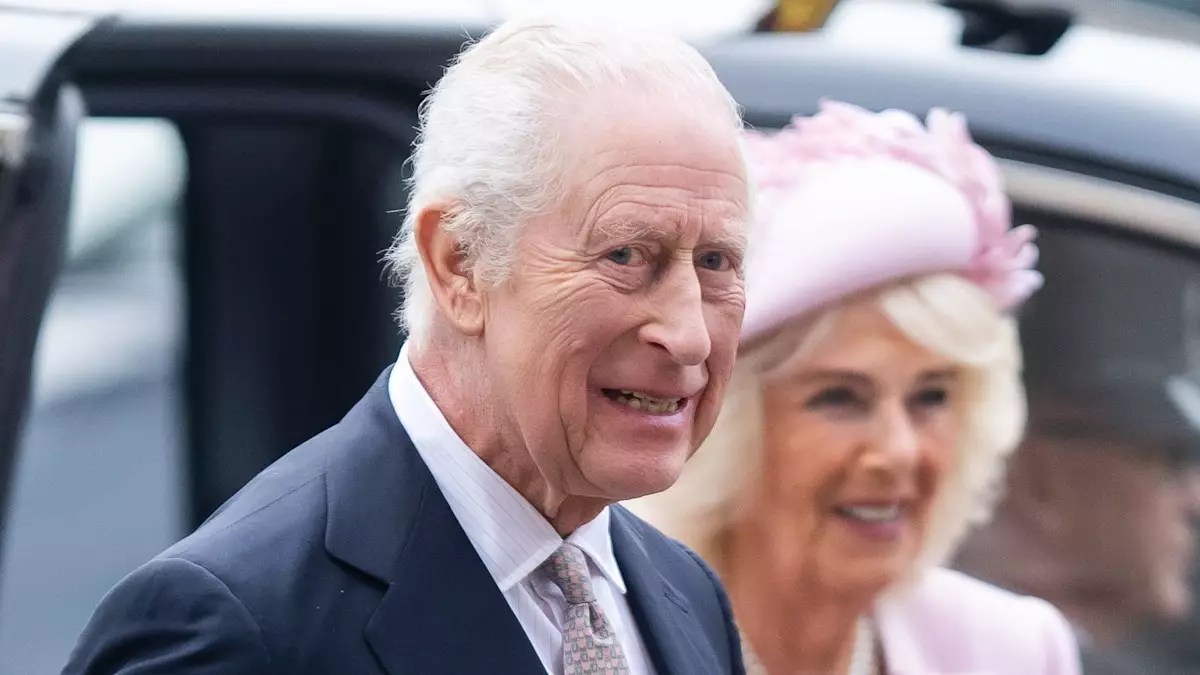The recent hospitalization of King Charles has sent ripples through the corridors of Buckingham Palace and the broader world of royal enthusiasts. The palace’s confirmation that the monarch was hospitalized due to adverse effects from his cancer treatments raised alarm bells among those who care about his well-being. However, the reassuring message that he was recovering well belied a stark reality: his relentless pursuit of royal duties continues even amidst personal turmoil. This determination to maintain a packed schedule, including a planned trip to Italy in ten days, reveals a complex interplay between duty, identity, and the cultural pressures that accompany the monarchy.
The Relentless Pursuit of Duty
King Charles’s work ethic has been widely lauded, with many considering it a hallmark of his character. Yet, the relentless dedication to his duties raises important questions about the impacts of such a lifestyle. Reports following his hospital discharge hint at a king who is unwilling to slow down, with Queen Camilla herself commenting on his unwavering commitment to his role. Such behavior strikes a chord not only with royal watchers but with anyone striving for excellence in their personal or professional lives.
The anecdotal evidence supporting this workaholic attitude is both amusing and telling. Descriptions of King Charles falling asleep at his desk with papers stuck to his face or disappearing into the early morning hours to write letters paint the picture of a man who equates productivity with value. This obsession could very well serve as a tragic flaw, particularly in the light of his health challenges. It signals a normalized culture of overwork, reminiscent of countless leaders and high achievers who believe that downtime equates to weakness.
The Psychological Underpinnings of Overwork
Psychological and societal factors weave together to form a potent rationale for King Charles’s work habits. Renowned longevity expert Dr. Mohammed Enayat highlights that for many high-profile figures, productivity is often seen as synonymous with self-worth. This erroneous belief traps individuals in a cycle of overcommitment, where stepping back is perceived as a lack of ambition or drive.
Mental health professionals have long documented the distressing consequences of such work-driven mindsets. The effects of high stress include anxiety and sleep disruptions, which ultimately detract from overall health. King Charles’s situation exemplifies how societal expectations can warp our understanding of success and well-being.
The Hidden Costs of Productivity
Elizabeth Walker, a professional recovery coach, delves deeper into the psychology of overcommitment. According to her, the inability to disengage from work is rooted in a fear of inadequacy—fears that, without productivity, one’s identity dissipates. This notion resonates particularly in light of King Charles’s status; navigating public perception while adhering to personal ambitions creates a delicate balance that can easily tip into detrimental territory.
Continued neglect of self-care can lead to a multitude of health issues. As Walker poignantly articulates, without adequate rest, individuals begin to treat their bodies like machines, disregarding the human need for emotional and physical nurture. This perspective serves as a stark reminder of the fragility of health and the importance of prioritizing well-being over relentless productivity.
The Monarchy’s Dilemma: Legacy vs. Well-being
The case of King Charles poignantly illustrates the broader dilemma faced by many modern leaders: how to reconcile the demands of responsibility with the imperative of self-care. The public fascination with the royal family only amplifies these pressures, casting a harsh spotlight on any perceived weakness or deviation from duty.
However, rooting for a monarch who embraces rest and self-care could significantly shift public perception regarding leadership and health. Imagine a king who openly prioritized his recovery, reshaping the narrative around what it means to be a leader in today’s world. Healthy leaders not only perform better but set a crucial example for others.
As King Charles prepares for his future commitments, one can only hope that he will heed the wisdom of those closest to him, particularly Queen Camilla. The stakes extend far beyond individual health—they reflect societal values surrounding work, identity, and what it truly means to serve the public. The time may have come for a royal revolution: the embrace of balance over unwavering responsibility.


Leave a Reply